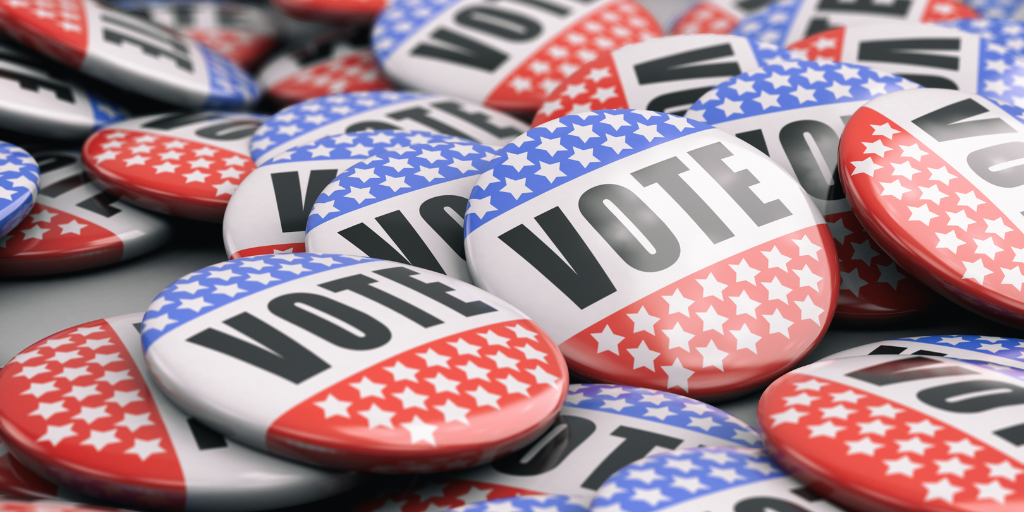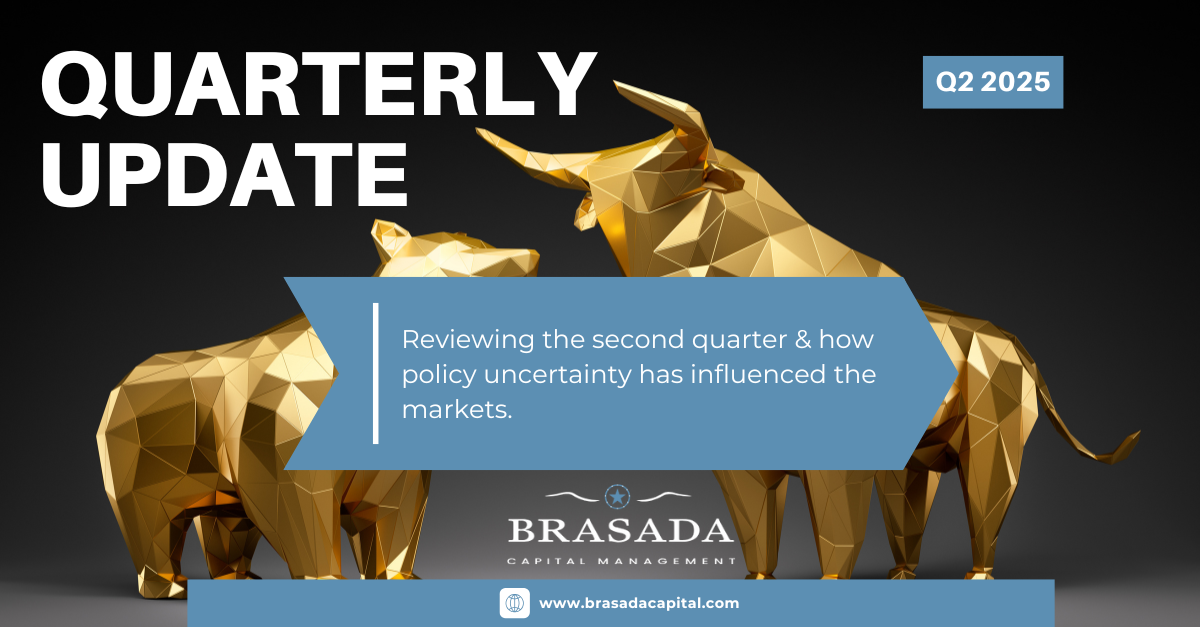Second Quarter of 2025
“Far more money has been lost by investors preparing for corrections or trying to anticipate corrections than has been lost in corrections...
3 min read
 Gabe Birdsall
:
Aug 13, 2024 11:09:49 AM
Gabe Birdsall
:
Aug 13, 2024 11:09:49 AM

What the U.S. Presidential Election Means for the Stock Market
By Gabe Birdsall & Tien San-Lucas
With less than 90 days until Election Day, we thought we would tackle the question that might be on many investors’ minds: Which party is better for the stock market – Republicans or Democrats, or does it even matter? We’re going to look at history and examine what happens to the stock market before a presidential election, shortly after an election, and a year after an election. Before you read further, we want to say this blog post is not for or against any candidate, but rather how we, at Brasada, navigate through an election period.
First, let’s look at the average performance of the S&P 500 Index during an election year, shown on the chart below for the period 1972 to 2020. So far, 2024 seems to fit the trend. Two observations: (1) Performance is not linear, but the return on average is strong. (2) History suggests we should be buyers during any pullbacks in an election year.

Election years tend to be volatile, and to-date, 2024 also seems to fit this bill. This could be attributable to uncertainty about the future and the election’s potential impact on policies and on the economy. Whatever the reason, the average market pullback during a presidential election is approximately 14%, according to Strategas Research. The good news though is that for those willing to ride out the volatility and stay invested, the average performance one year later is +24%!
We may see volatility before the election and immediately after the election. Before the election, the stock market often reacts to the perceived likelihood of a candidate’s victory and the anticipated policy impact. After the election, the market’s reaction often depends on whether the results align with investors' expectations of the outcome. Eventually, the market tends to stabilize and rally once the uncertainty of the election outcome is resolved. We view these bouts of volatility as longer-term opportunities.

There is data that suggests the stock market is the best predictor of the eventual election outcome (much more reliable than polls). The rule of thumb states that if the stock market is up 3 months before November, the incumbent usually wins. Although this has worked 87% of the time since World War II, we think this overstates the merits. A strong market tends to reflect a strong economy or economic outlook, and perhaps the economy and outlook are more important drivers. However, there are many factors affecting the stock market, including monetary policy, an area where 2024 may see an important shift. Investors expect the Federal Reserve to pivot from hawkish to dovish this year as it begins to focus on a slowing economy and its fight against inflation will be in the review mirror.
Although we take a longer-term approach to the market, we don’t completely ignore the election. We do take the time to understand how the election outcome could affect the economy, trade policies, and specific industries. A few factors influencing the current election:
Much has been written on regulatory policies under different administrations. Interestingly, the Office of Information and Regulatory Affairs (OIRA) shows that regardless of which president is in office or what party they are from, the number of policies and regulations implemented under a president appears to be high. We want to understand how different policies will affect economic growth and profits for different industries and companies.

We want to share a final and arguably most important piece of data: history shows that regardless of who wins, the stock market tends to do well regardless. Looking back at every election since 1961 (see chart below), you can rest assured that whether the White House is red or blue makes little to no difference to long term equity returns. We believe that the stock market's performance is more influenced by the overall health of the economy and Fed policy rather than the sitting president. Factors such as corporate earnings, interest rates, and global economic conditions play significant roles, and this is where we focus our time and attention, despite the media headlines trying to distract us. It’s very easy to get carried away in the respective candidate’s platforms, but being stewards of history, we realize that other factors are much more important over time, and they will drive the eventual outcome of a successful investment strategy.
In summary, don’t let an election cycle or its results change your investment plans.

Disclaimer: This post is for information purposes only and should not be construed as an offer or solicitation for the sale or purchase of any securities. Past performance is no guarantee of future performance. The information provided is believed to be from reliable sources, but no liability is accepted for any inaccuracies. Brasada Capital Management, LP is an investment adviser registered with the U.S. Securities and Exchange Commission. Registration does not imply a certain level of skill or training. If you have any questions, please contact our team.

“Far more money has been lost by investors preparing for corrections or trying to anticipate corrections than has been lost in corrections...
.png)
UNDERSTANDING TARIFFS: ECONOMIC IMPACT, RATIONALE AND CONTROVERSIES
%20(3).png)
Market Selloff Dear Clients and Friends, Thursday and Friday marked the 4th time in the last 50 years when the S&P 500 had a 2-day drop of over...